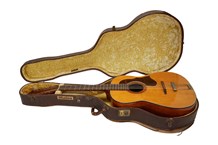Of particular concern was the announcement that, in advance of September’s CITES summit in South Africa, the US government will table a motion encouraging all countries to follow their lead in closing the market in ivory.
New CINOA president and Manhattan dealer in English furniture, Clinton Howell, told ATG the organisation needs to be seen as “a leader and a voice for the industry on this issue”, but expressed his frustration that neither CINOA nor other representatives of the art and antiques trade will be permitted to attend the CITES summit.
More encouraging was the opacity now surrounding the pledge of French environment minister Ségolène Royal to push for “a ban on any kind of ivory trade in France”.
Conference delegates were told that Royal’s surprise announcement in May, which attracted a unified protest by the country’s art associations, represented the soundbite of an individual politician rather than current government policy.
UK Position
Marco Forgione, chief executive officer of the BADA, was among the representatives of both UK dealer associations who attended in the hope of encouraging overseas bodies to lobby their governments on the ivory question in advance of the September CITES gathering.
He told ATG: “The UK stands as a beacon of excellence on this issue – an example of how we can continue a legitimate trade in antique ivory, protect our cultural heritage, while standing firmly against poaching.”
International trade bodies gathered in Paris from June 23-25 for the conference hosted by French association, the Syndicat National des Antiquaires (SNA), which rejoined CINOA in January after a 12-year absence. The Brussels-based federation represent around 5000 dealers from 32 associations in 22 countries.





